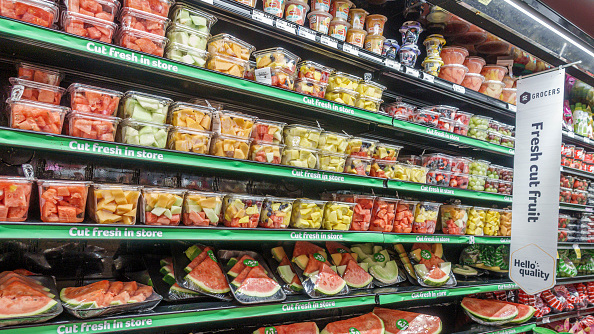
The fast-moving consumer goods (FMCG) industry is a dynamic and highly competitive field that encompasses a wide range of products, including food and beverages, personal care items, household goods, and more. Starting a successful FMCG business requires careful planning, market research, and strategic decision-making. In this comprehensive guide, we will explore the essential steps and key considerations to help you embark on your FMCG journey.
- Conduct Thorough Market Research:
Before diving into the FMCG industry, it is crucial to conduct thorough market research. Identify your target market, understand consumer preferences, and analyze competitors. This will provide valuable insights into market trends, demand patterns, and potential opportunities for your FMCG venture. - Define Your Unique Selling Proposition (USP):
To stand out in the competitive FMCG landscape, you need a compelling USP. Determine what sets your products apart from others in terms of quality, price, packaging, or innovation. Your USP should resonate with your target audience and create a strong brand identity. - Develop a Robust Supply Chain:
Efficient supply chain management is vital in the FMCG industry. Establish relationships with reliable suppliers, negotiate favorable terms, and ensure a steady flow of raw materials. Optimize your production processes to minimize costs, maintain quality standards, and meet customer demands promptly. - Build a Strong Distribution Network:
A well-structured distribution network is essential for FMCG success. Identify the most effective channels to reach your target market, whether it’s through supermarkets, convenience stores, online platforms, or a combination of various channels. Develop strategic partnerships with distributors and retailers to ensure widespread availability of your products. - Implement Effective Marketing Strategies:
Crafting effective marketing strategies is crucial for FMCG success. Leverage digital marketing tools, social media platforms, and influencer collaborations to create brand awareness and engage with your target audience. Implement targeted advertising campaigns, promotions, and loyalty programs to drive sales and foster customer loyalty. - Prioritize Product Quality and Innovation:
In the FMCG industry, product quality and innovation are paramount. Continuously invest in research and development to improve existing products and develop new ones. Stay updated with consumer trends, preferences, and emerging technologies to stay ahead of the competition. - Monitor and Analyze Performance:
Regularly monitor and analyze key performance indicators (KPIs) to evaluate the success of your FMCG business. Track sales figures, market share, customer feedback, and profitability. Use this data to identify areas for improvement, make informed business decisions, and adapt your strategies accordingly.
Conclusion:
Starting an FMCG business requires a comprehensive understanding of the industry, meticulous planning, and a customer-centric approach. By conducting thorough market research, defining a compelling USP, building a robust supply chain and distribution network, implementing effective marketing strategies, prioritizing product quality and innovation, and monitoring performance, you can lay a strong foundation for a successful FMCG venture. Remember, adaptability and continuous improvement are key to thriving in this ever-evolving industry.

